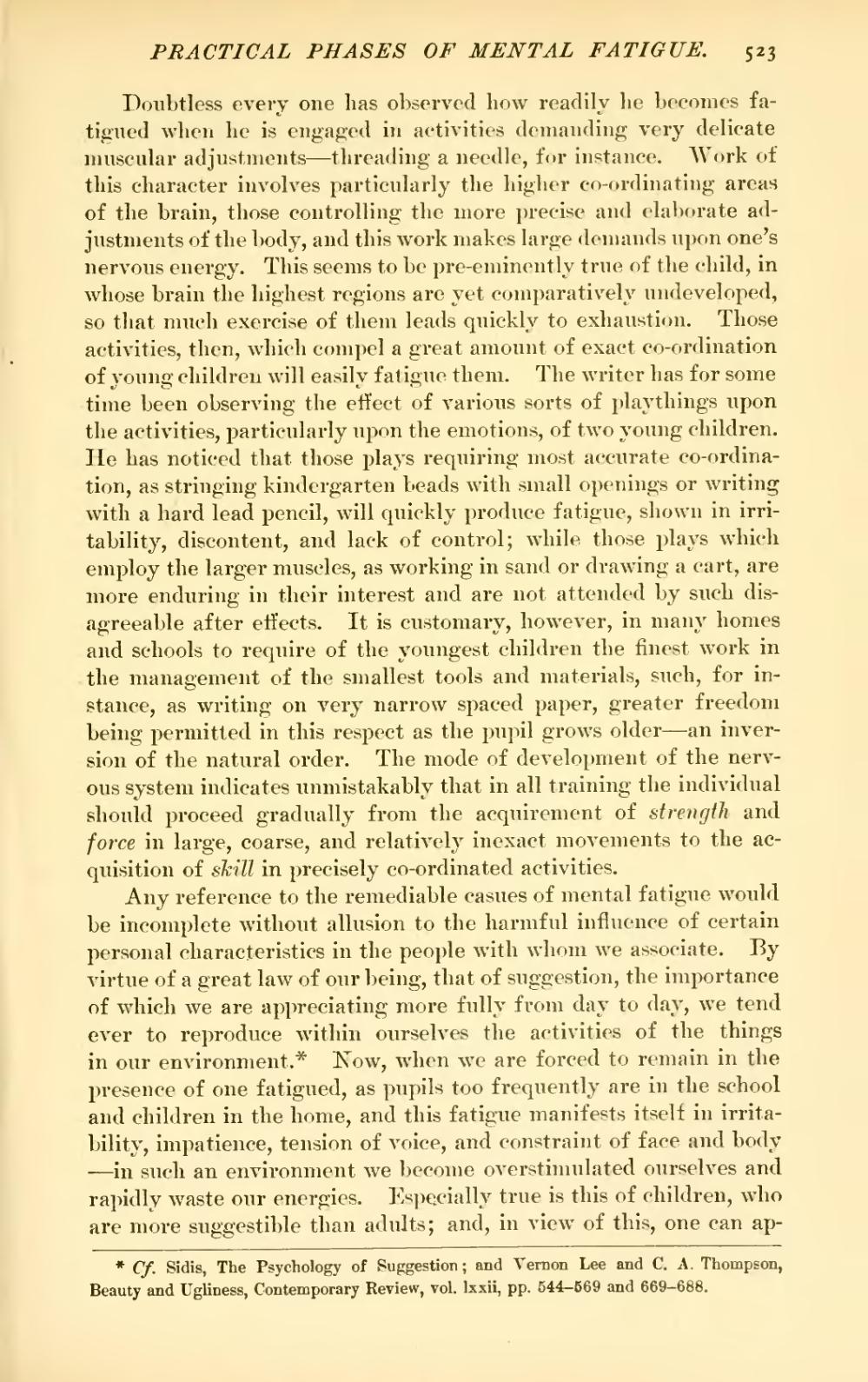Doubtless every one has observed how readily he becomes fatigued when he is engaged in activities demanding very delicate muscular adjustments—threading a needle, for instance. Work of this character involves particularly the higher co-ordinating areas of the brain, those controlling the more precise and elaborate adjustments of the body, and this work makes large demands upon one's nervous energy. This seems to be pre-eminently true of the child, in whose brain the highest regions are yet comparatively undeveloped, so that much exercise of them leads quickly to exhaustion. Those activities, then, which compel a great amount of exact co-ordination of young children will easily fatigue them. The writer has for some time been observing the effect of various sorts of playthings upon the activities, particularly upon the emotions, of two young children. He has noticed that those plays requiring most accurate co-ordination, as stringing kindergarten beads with small openings or writing with a hard lead pencil, will quickly produce fatigue, shown in irritability, discontent, and lack of control; while those plays which employ the larger muscles, as working in sand or drawing a cart, are more enduring in their interest and are not attended by such disagreeable after effects. It is customary, however, in many homes and schools to require of the youngest children the finest work in the management of the smallest tools and materials, such, for instance, as writing on very narrow spaced paper, greater freedom being permitted in this respect as the pupil grows older—an inversion of the natural order. The mode of development of the nervous system indicates unmistakably that in all training the individual should proceed gradually from the acquirement of strength and force in large, coarse, and relatively inexact movements to the acquisition of skill in precisely co-ordinated activities.
Any reference to the remediable casues of mental fatigue would be incomplete without allusion to the harmful influence of certain personal characteristics in the people with whom we associate. By virtue of a great law of our being, that of suggestion, the importance of which we are appreciating more fully from day to day, we tend ever to reproduce within ourselves the activities of the things in our environment.[1] Now, when we are forced to remain in the presence of one fatigued, as pupils too frequently are in the school and children in the home, and this fatigue manifests itself in irritability, impatience, tension of voice, and constraint of face and body—in such an environment we become overstimulated ourselves and rapidly waste our energies. Especially true is this of children, who are more suggestible than adults; and, in view of this, one can ap-
- ↑ Cf. Sidis, The Psychology of Suggestion; and Vernon Lee and C. A. Thompson, Beauty and Ugliness, Contemporary Review, vol. lxxii, pp. 544-569 and 669-688.
